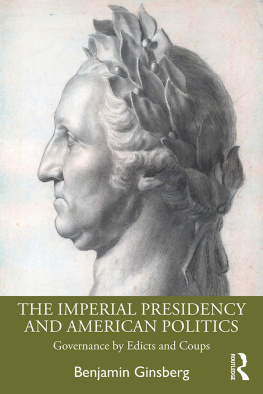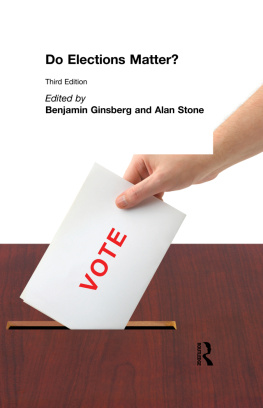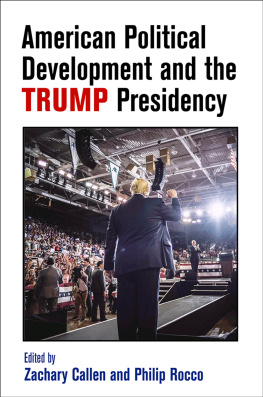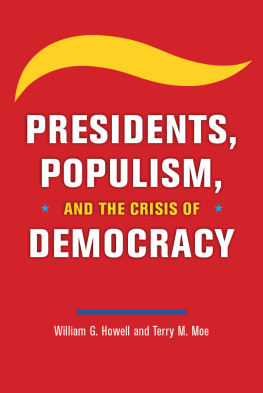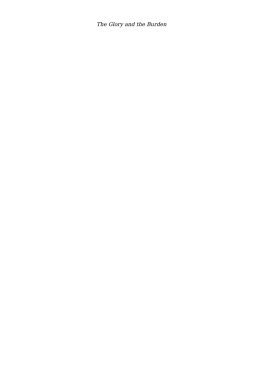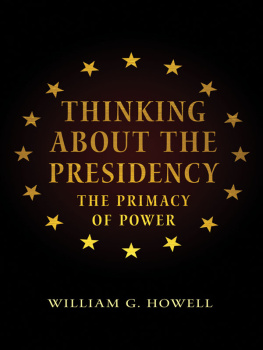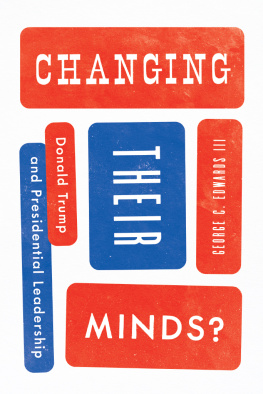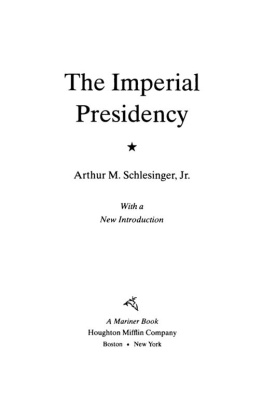The Imperial Presidency and American Politics
Those who saw Donald Trump as a novel threat looming over American democracy and now think the danger has passed may not have been paying much attention to the political developments of the past several decades. Trump was merely the most recentand will surely not be the lastin a long line of presidents who expanded the powers of the office and did not hesitate to act unilaterally when so doing served their purposes. Unfortunately, Trump is also unlikely to be the last president prepared to do away with his enemies in the Congress and transform the imperial presidency from a theory to a reality.
Though presidents are elected more or less democratically, the presidency is not and was never intended to be a democratic institution. The framers thought that America would be governed by its representative assembly, the Congress of the United States. Presidential power, like a dangerous pharmaceutical, might have been labelled, to be used only when needed.
Today, Congress sporadically engages in law making but the president actually governs. Congress has become more an inquisitorial than a legislative body. Presidents rule through edicts while their opponents in the Congress counter with the threat of impeachmentan action that amounts to a political, albeit nonviolent coup. The courts sputter and fume but generally back the president. This is the new separation of powersthe president exercises power and the other branches are separated from it.
Where will this end? Regardless of who occupies the Oval Office, the imperial presidency is inexorably bringing down the curtain on American representative democracy.
Benjamin Ginsberg is the David Bernstein Professor of Political Science and Chair of the Center for Advanced Governmental Studies at Johns Hopkins University, USA. He is the author, co-author, or editor of 30 books including The Fall of the Faculty; Presidential Government; Downsizing Democracy; The Captive Public; Politics By Other Means; and Americas State Governments: A Critical Look at Disconnected Democracies (Routledge, 2021). Ginsberg received his PhD from the University of Chicago in 1973 and was Professor of Government at Cornell until 1992 when he joined the Hopkins faculty.
Praise for The Imperial Presidency and American Politics
The modern presidency seems to be out of controlpowerful, unilateral, and, ultimately, destabilizing to the political system. In this provocative and engaging book, Benjamin Ginsberg diagnoses these long-term developments and treats Donald Trumps presidency as emblematic of, rather than a departure from, the disturbing trends of presidentialization, bureaucratic in-fighting and legal warfare, and the overall decline of democratic control over national government.
Douglas B. Harris, Loyola University Maryland, USA
A giant in the field of institutional politics, Benjamin Ginsberg once again delivers a highly insightful and engaging work. The book shines a light on the growing and largely unchecked power of the U.S. presidency. This is a must-read for scholars and citizens alike who are concerned about the future of American democracy.
Jennifer Bachner, Johns Hopkins University, USA
Ginsberg brings together the fascination with Trump and the imperial presidency to lay out a driving narrative about the nature of American governance as it has evolved in recent decades to become ever-more presidency-centered. He has elegantly distilled this as the politics of edicts and coups. Yet this is not simply a polemical work. Ginsberg parses the component elements that have brought the country to this point, examining battles over the bureaucracy, the role of law enforcement/security agencies, and consistently pro-executive court rulings. Ginsbergs end point is as sober as it is significant: that the American system is about power, not democracy.
Robert J. Spitzer, SUNY Cortland, USA
First published 2022
by Routledge
605 Third Avenue, New York, NY 10158
and by Routledge
2 Park Square, Milton Park, Abingdon, Oxon OX14 4RN
Routledge is an imprint of the Taylor & Francis Group, an informa business
2022 Benjamin Ginsberg
The right of Benjamin Ginsberg to be identified as author of this work has been asserted by him in accordance with sections 77 and 78 of the Copyright, Designs and Patents Act 1988.
All rights reserved. No part of this book may be reprinted or reproduced or utilised in any form or by any electronic, mechanical, or other means, now known or hereafter invented, including photocopying and recording, or in any information storage or retrieval system, without permission in writing from the publishers.
Trademark notice: Product or corporate names may be trademarks or registered trademarks, and are used only for identification and explanation without intent to infringe.
Library of Congress Cataloging-in-Publication Data
Names: Ginsberg, Benjamin, author.
Title: The imperial presidency and American politics : governance by edicts and coups / Benjamin Ginsberg.
Description: First Edition. | New York : Routledge, 2021. | Includes bibliographical references and index.
Identifiers: LCCN 2020055967 (print) | LCCN 2020055968 (ebook) | ISBN 9780367625283 (Hardback) | ISBN 9780367619961 (Paperback) | ISBN 9781003109556 (eBook)
Subjects: LCSH: PresidentsUnited StatesHistory. | Executive powerUnited StatesHistory. | United StatesPolitics and government.
Classification: LCC JK511 .G55 2021 (print) | LCC JK511 (ebook) | DDC 320.973dc23
LC record available at https://lccn.loc.gov/2020055967
LC ebook record available at https://lccn.loc.gov/2020055968
ISBN: 978-0-367-62528-3 (hbk)
ISBN: 978-0-367-61996-1 (pbk)
ISBN: 978-1-003-10955-6 (ebk)
DOI: 10.4324/9781003109556
To Sandy
I learned nearly everything I know about the presidency from conversations over the years with Matthew Crenson, Martin Shefter, and the late Theodore Lowi as well as from discussions with the thousands of students who have taken my classes at Hopkins and Cornell. I hope they learned as much from me as I learned from them. For the third time, now, I want to thank my wonderful editor, Jennifer Knerr as well as the members of the production staff at Routledge. In particular, I am grateful to Jacqueline Dorsey and Catherine Scarratt for their fine work, Andrew Busch and Robert J. Spitzer for their excellent comments, and Sarah M. Hall for copy editing.
DOI: 10.4324/9781003109556-1
Those who saw Donald Trump as a novel threat looming over American democracy and now think the danger has passed may not have been paying much attention to the political developments of the past several decades. Trump was merely the most recentand will surely not be the lastin a long line of presidents who expanded the powers of the office and did not hesitate to act unilaterally when so doing served their purposes. Indeed, even before he took office, Joe Biden declared that he would be issuing executive orders to address the nations great crises, including the Covid-19 crisis, the climate crisis and the racial equality crisis. True to his word, Biden issued a record 17 executive orders on his first day in office, many aimed at reversing orders issued by his predecessor.
Trump was, of course, the first president who explicitly threatened to refuse to cede power after suffering an electoral defeat. But, despite his claims of a stolen election, Trump failed to change the vote count and faced certain defeat when Congress affirmed the electoral vote. Accordingly, he turned to more direct, albeit not well-organized action.

